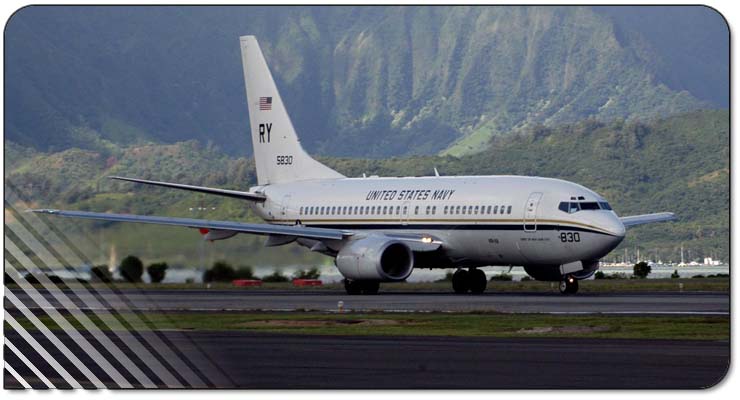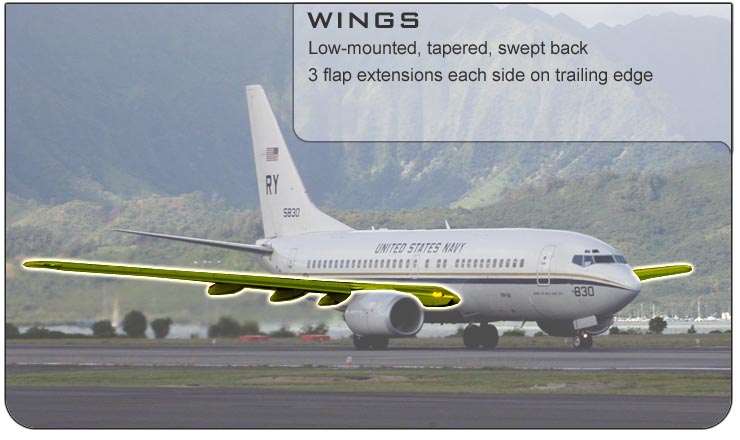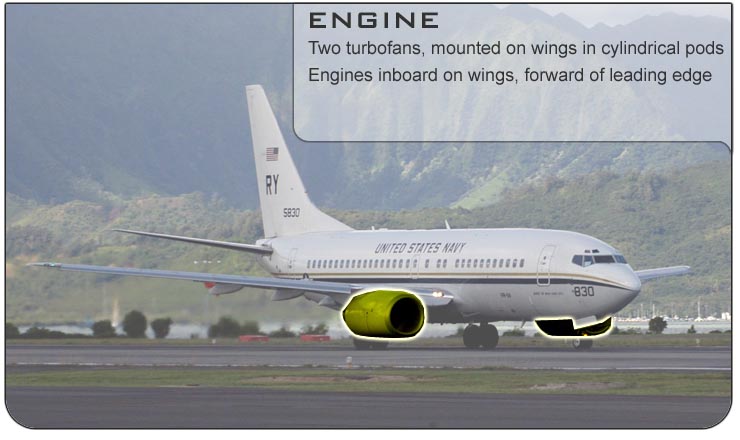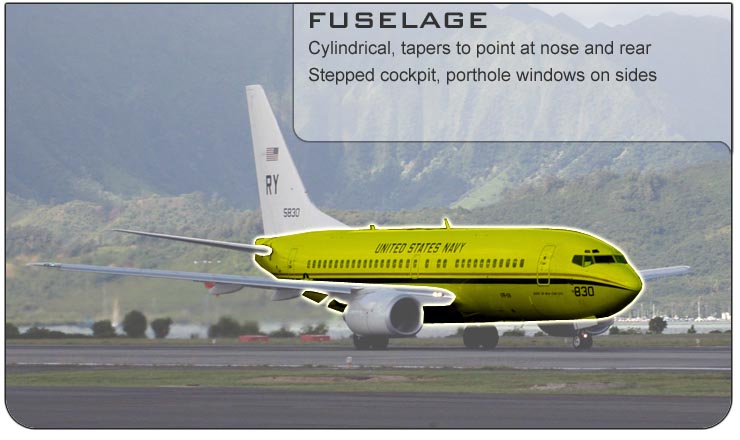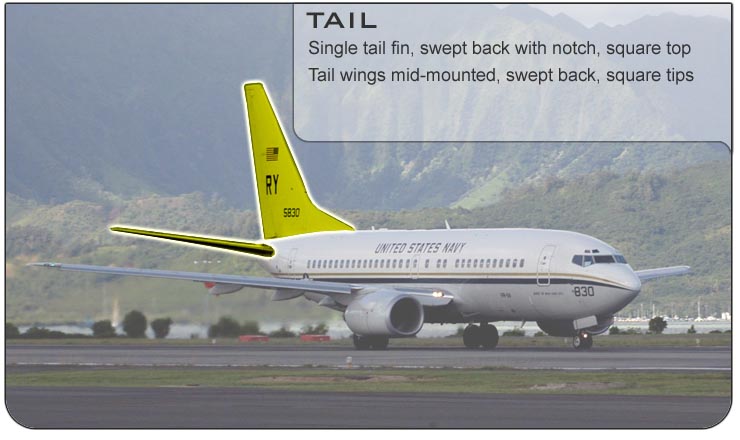Description:
737-700
convertible/combi: high-performance, flexible, and cost effective
aircraft support.
Features:
The C-40A Clipper provides critical logistics support to the Navy. It's
flight deck features a flight management computer system with an
integrated GPS. It is compatible with future GATM/FANS operating
environment (RNP-1). It is RVSM capable. It has the Traffic Alert and
Collision Avoidnace System II on board. It also has an enhanced ground
proximity warning system, predictive wind shear, head-up display and
TACAN/UHF/IFF functions.
Background:
The U.S. Naval Reserve - which will operate and maintain the aircraft -
is the first customer for the newest member of the Boeing
Next-Generation 737 family and is purchasing the aircraft to replace
its fleet of aging C-9 Skytrains. Currently, the Naval Reserve provides
100 percent of the Navy's worldwide in-theater medium and heavy
airlift.
The
Clipper meets or exceeds international noise and environmental
requirements that plague the current fleet of Naval Reserve C-9s. It is
also more fuel-efficient and offers increased range and payload
capabilities. The C-40A is the first new logistics aircraft in 17 years
to join the Naval Reserve.
The
737-700C aircraft will be certified to operate in an all-passenger (121
passengers), all-cargo or combination ("combi") configuration that will
accommodate up to three cargo pallets and 70 passengers on the main
deck.
The
Navy is purchasing the airplanes using standard commercial practices,
and has ordered five of the 737-700C models. A sixth aircraft is in the
Defense budget for 2001. The first four aircraft are scheduled to be
stationed in Ft. Worth, Texas, with the first to be delivered in early
2001. The fifth and sixth aircraft are scheduled to be stationed in
Jacksonville, FL. |
WEFT Description
-
- WINGS
- ENGINE
- FUSELAGE
- TAIL
|
|
